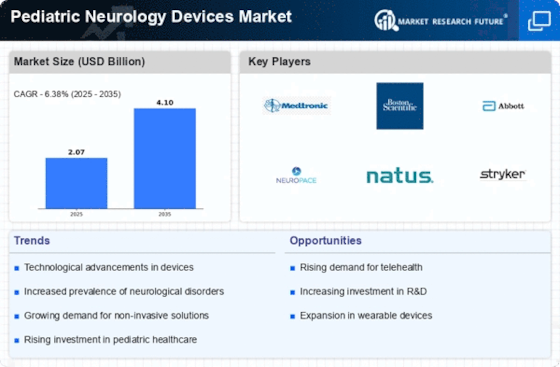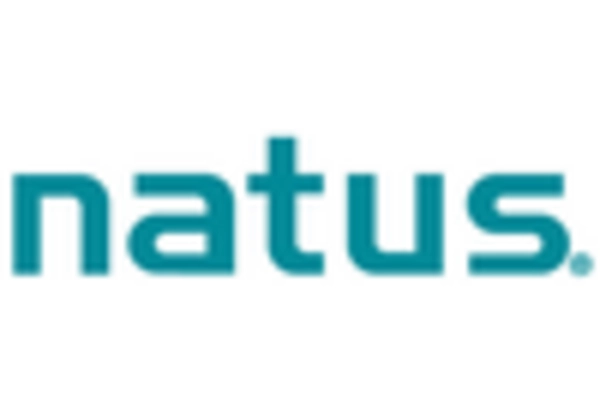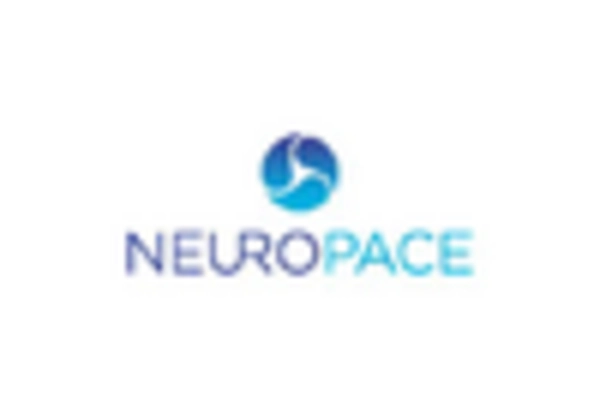-
Report
-
Prologue
-
Market Introduction
-
Definition
-
Scope of the Study
-
Research Objective
-
Assumptions
-
Limitations
-
Research Methodology
-
Introduction
-
Primary Research
-
Secondary research
-
Market Size Estimation
-
Market Dynamics
-
Drivers
-
Restrains
-
Opportunities
-
Challenges
-
Macroeconomic Indicators
-
Technology Trends & Assessment
-
Market Factor Analysis
-
Porters Five Forces Analysis
- Bargaining Power of Suppliers
- Bargaining
- Threat of Substitutes
- Intensity of Rivalry
-
Power of Buyers
-
Threat of New Entrants
-
Value Chain Analysis
-
Investment Feasibility Analysis
-
Pricing Analysis
-
Global Pediatric Neurology
-
Global Pediatric Neurology Devices Market, by Type
-
Introduction
-
Neurosurgery Devices
- Market Estimates & Forecast, 2020-2027
-
Neurostimulator
- Market Estimates
-
& Forecast, 2020-2027
-
Cerebrospinal Fluid (CSF) Management Devices
- Market Estimates &
-
Forecast, 2020-2027
-
Others
-
Market Estimates & Forecast, 2020-2027
-
Global Pediatric Neurology Devices Market, by
-
Service and treatment
-
Introduction
-
Electroencephalogram
-
Market Estimates & Forecast, 2020-2027
-
Intrathecal baclofen therapy
- Market Estimates &
- Market Estimates & Forecast, 2020-2027
-
Forecast, 2020-2027
-
Neurological Evaluations
-
Vagal nerve stimulation
- Market Estimates
-
& Forecast, 2020-2027
-
Others
- Market Estimates & Forecast, 2020-2027
-
Global Pediatric Neurology
-
Global Pediatric Neurology Devices Market, by Neurological subspecialties
-
Introduction
-
Neuro-oncology
- Market Estimates & Forecast, 2020-2027
-
Neuromuscular
- Market Estimates
-
& Forecast, 2020-2027
-
Neonatal Neurology
- Market Estimates & Forecast, 2020-2027
-
Neuroimmunology
- Market Estimates
-
& Forecast, 2020-2027
-
6 Stroke
-
6.1 Market Estimates & Forecast, 2020-2027
-
7 Others
-
Forecast, 2020-2027
-
Market Estimates &
-
Global Pediatric Neurology Devices Market, by Age group
-
Introduction
-
Neonates
- Market Estimates & Forecast, 2020-2027
-
Infants
- Market Estimates
-
& Forecast, 2020-2027
-
Children
- Market Estimates & Forecast, 2020-2027
-
Adolescents
- Market Estimates &
-
Forecast, 2020-2027
-
Global Pediatric Neurology Devices Market, by End User
-
Introduction
-
Hospitals
- Market Estimates & Forecast, 2020-2027
-
Healthcare Centers
- Market Estimates
-
& Forecast, 2020-2027
-
Neurological Research centers
- Market Estimates & Forecast, 2020-2027
-
Others
- Market Estimates
-
& Forecast, 2020-2027
-
Global Pediatric Neurology Devices Market, by Region
-
Introduction
-
Americas
- North America
- South America
-
Europe
- Western Europe
- United Arab Emirates
- Saudi Arabia
- Oman
- Kuwait
- Qatar
- Rest of the Middle East & Africa
-
Europe
-
Eastern Europe
-
Asia Pacific
-
Japan
-
China
-
India
-
Australia
-
Republic of Korea
-
Rest of Asia Pacific
-
The Middle East & Africa
-
Company Landscape
-
Introduction
-
Market
- Key Developments
-
Share Analysis
-
Key Development & Strategies
-
Company Profiles
-
Elana, Inc.
- Company Overview
- Product Overview
- Financials
- SWOT Analysis
-
Inova Healthcare System
- Company Overview
- Product Overview
- Financial Overview
- Key Developments
- SWOT Analysis
-
Medtronic
- Company Overview
- Product Overview
- Financial Overview
- Key Development
- SWOT Analysis
-
The Nemours Foundation
- Company Overview
- Product/Business Segment Overview
- Financial Overview
- Key
- Company Overview
- Product Overview
- Financial Overview
- Key Developments
- SWOT Analysis
-
Development
-
SWOT Analysis
-
Stryker Corporation
-
Company Overview
-
Product Overview
-
Financial overview
-
Key Developments
-
SWOT Analysis
-
Boston Scientific Corporation
-
B.Braun Melsungen AG
- Overview
- Product Overview
- Financials
- Key Developments
- SWOT Analysis
-
Integra LifeSciences Corporation
- Overview
- Product Overview
- Financials
- Key Developments
- SWOT
-
Analysis
-
St. Jude Medical, LLC
-
Overview
-
Product Overview
-
Financials
-
Key Developments
-
SWOT Analysis
-
Others
-
MRFR
-
Conclusion
-
Key Findings
-
From CEO’s View Point
-
Unmet Needs of the Market
-
Key Companies to Watch
-
Prediction of Pharmaceutical Industry
-
Appendix
-
-
LIST OF TABLES
-
Pediatric Neurology
-
Devices Industry Synopsis, 2020-2027
-
Global Pediatric Neurology Devices Market Estimates
-
and Forecast, 2020-2027, (USD Million)
-
Global Pediatric Neurology Devices Market by Region,
-
Global Pediatric Neurology Devices Market by Type, 2020-2027,
-
(USD Million)
-
Table
-
Global Pediatric Neurology Devices Market by Service and treatment, 2020-2027,
-
(USD Million)
-
Table
-
Global Pediatric Neurology Devices Market by Neurological subspecialties, 2020-2027,
-
(USD Million)
-
Table
-
Global Pediatric Neurology Devices Market by Age group, 2020-2027, (USD Million)
-
Global Pediatric
-
Neurology Devices Market by End User, 2020-2027, (USD Million)
-
North America Pediatric
-
Neurology Devices Market by Type, 2020-2027, (USD Million)
-
North America Pediatric Neurology Devices
-
Market by Service and treatment, 2020-2027, (USD Million)
-
North America Pediatric Neurology Devices
-
Market by Neurological subspecialties, 2020-2027, (USD Million)
-
North America Pediatric
-
Neurology Devices Market by Age group, 2020-2027, (USD Million)
-
North America Pediatric
-
Neurology Devices Market by End User, 2020-2027, (USD Million)
-
US Pediatric Neurology
-
Devices Market by Type, 2020-2027, (USD Million)
-
US Pediatric Neurology Devices Market by
-
Service and treatment, 2020-2027, (USD Million)
-
US Pediatric Neurology Devices Market by
-
Neurological subspecialties, 2020-2027, (USD Million)
-
US Pediatric Neurology Devices Market by
-
Age group, 2020-2027, (USD Million)
-
US Pediatric Neurology Devices Market by End User,
-
Canada Pediatric Neurology Devices Market by Type, 2020-2027,
-
(USD Million)
-
Table
-
Canada Pediatric Neurology Devices Market by Service and treatment, 2020-2027,
-
(USD Million)
-
Table
-
Canada Pediatric Neurology Devices Market by Neurological subspecialties, 2020-2027,
-
(USD Million)
-
Table
-
Canada Pediatric Neurology Devices Market by Age group, 2020-2027, (USD Million)
-
Canada Pediatric
-
Neurology Devices Market by End User, 2020-2027, (USD Million)
-
South America Pediatric
-
Neurology Devices Market by Type, 2020-2027, (USD Million)
-
South America Pediatric Neurology Devices
-
Market by Service and treatment, 2020-2027, (USD Million)
-
South America Pediatric Neurology Devices
-
Market by Neurological subspecialties, 2020-2027, (USD Million)
-
South America Pediatric
-
Neurology Devices Market by Age group, 2020-2027, (USD Million)
-
South America Pediatric
-
Neurology Devices Market by End User, 2020-2027, (USD Million)
-
Europe Pediatric Neurology
-
Devices Market by Type, 2020-2027, (USD Million)
-
Europe Pediatric Neurology Devices Market
-
by Service and treatment, 2020-2027, (USD Million)
-
Europe Pediatric Neurology Devices Market
-
by Neurological subspecialties, 2020-2027, (USD Million)
-
Europe Pediatric Neurology Devices Market
-
by Age group, 2020-2027, (USD Million)
-
Europe Pediatric Neurology Devices Market by End
-
User, 2020-2027, (USD Million)
-
Western Europe Pediatric Neurology Devices Market by Type,
-
Western Europe Pediatric Neurology Devices Market by Service
-
and treatment, 2020-2027, (USD Million)
-
Western Europe Pediatric Neurology Devices Market
-
by Neurological subspecialties, 2020-2027, (USD Million)
-
Western Europe Pediatric Neurology Devices
-
Market by Age group, 2020-2027, (USD Million)
-
Western Europe Pediatric Neurology Devices
-
Market by End User, 2020-2027, (USD Million)
-
Eastern Europe Pediatric Neurology Devices
-
Market by Type, 2020-2027, (USD Million)
-
Eastern Europe Pediatric Neurology Devices Market
-
by Service and treatment, 2020-2027, (USD Million)
-
Eastern Europe Pediatric Neurology Devices
-
Market by Neurological subspecialties, 2020-2027, (USD Million)
-
Eastern Europe Pediatric
-
Neurology Devices Market by Age group, 2020-2027, (USD Million)
-
Eastern Europe Pediatric
-
Neurology Devices Market by End User, 2020-2027, (USD Million)
-
Asia Pacific Pediatric
-
Neurology Devices Market by Type, 2020-2027, (USD Million)
-
Asia Pacific Pediatric Neurology Devices
-
Market by Service and treatment, 2020-2027, (USD Million)
-
Asia Pacific Pediatric Neurology Devices
-
Market by Neurological subspecialties, 2020-2027, (USD Million)
-
Asia Pacific Pediatric
-
Neurology Devices Market by Age group, 2020-2027, (USD Million)
-
Asia Pacific Pediatric
-
Neurology Devices Market by End User, 2020-2027, (USD Million)
-
Middle East & Africa
-
Pediatric Neurology Devices Market by Type, 2020-2027, (USD Million)
-
Middle East & Africa
-
Pediatric Neurology Devices Market by Service and treatment, 2020-2027, (USD Million)
-
Middle East
-
& Africa Pediatric Neurology Devices Market by Neurological subspecialties,
-
Middle East & Africa Pediatric Neurology Devices Market
-
by Age group, 2020-2027, (USD Million)
-
Middle East & Africa Pediatric Neurology Devices
-
Market by End User, 2020-2027, (USD Million)
-
-
LIST OF FIGURES
-
Research Process
-
Segmentation for Global Pediatric Neurology
-
Devices Market
-
Figure
-
Segmentation Market Dynamics for Pediatric Neurology Devices Market
-
Global Pediatric
-
Global Pediatric Neurology Devices Market, by Type 2020
-
Global Pediatric Neurology Devices Market
-
Global Pediatric Neurology Devices Market, by Service and treatment 2020
-
Global Pediatric Neurology Devices Market,
-
by Neurological subspecialties, 2020
-
Global Pediatric Neurology Devices Market,
-
by Age group, 2020
-
Figure
-
Global Pediatric Neurology Devices Market, by End User, 2020
-
Global Pediatric Neurology
-
Global Pediatric Neurology Devices Market, by Region, 2020
-
Global Pediatric Neurology Devices Market,
-
by Country, 2020
-
Figure
-
Global Pediatric Neurology Devices Market, by Country, 2020
-
Asia Pacific Pediatric
-
Global Pediatric Neurology Devices Market, by Country, 2020
-
Middle East & Africa Pediatric Neurology
-
Global Pediatric Neurology Devices Market, by Country, 2020
-
Global Pediatric Neurology Devices Market: Company
-
Share Analysis, 2020 (%)
-
Elana, Inc.: Key Financials
-
Elana, Inc.: Segmental Revenue
-
Elana, Inc.:
-
Geographical Revenue
-
Figure
-
Inova Healthcare System: Key Financials
-
Inova Healthcare System: Segmental Revenue
-
Inova Healthcare
-
System: Geographical Revenue
-
Medtronic: Key Financials
-
Medtronic: Segmental Revenue
-
Medtronic:
-
Geographical Revenue
-
Figure
-
The Nemours Foundation: Key Financials
-
The Nemours Foundation: Segmental Revenue
-
The Nemours
-
Foundation: Geographical Revenue
-
Stryker Corporation: Key Financials
-
Stryker Corporation: Segmental Revenue
-
Stryker Corporation:
-
Geographical Revenue
-
Figure
-
Boston Scientific Corporation: Key Financials
-
Boston Scientific Corporation: Segmental
-
Revenue
-
Figure
-
Boston Scientific Corporation: Geographical Revenue
-
B.Braun Melsungen AG: Key Financials
-
B.Braun Melsungen
-
AG: Segmental Revenue
-
Figure
-
B.Braun Melsungen AG: Geographical Revenue
-
Integra LifeSciences Corporation: Key Financials
-
Integra LifeSciences
-
Corporation: Segmental Revenue
-
Integra LifeSciences Corporation: Geographical Revenue
-
St. Jude Medical,
-
LLC: Key Financials
-
Figure
-
St. Jude Medical, LLC: Segmental Revenue
-
St. Jude Medical, LLC: Geographical Revenue


















Leave a Comment